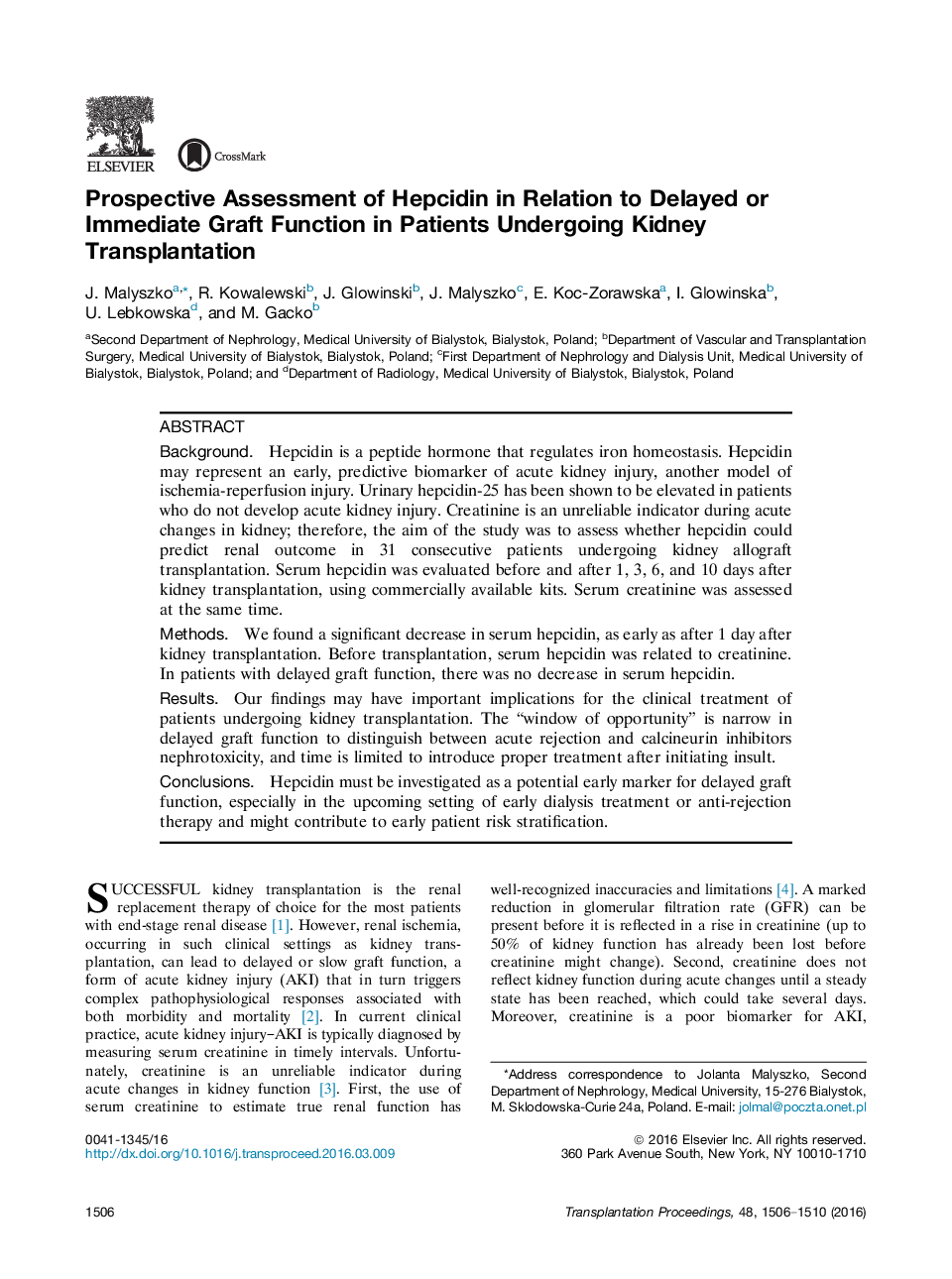| کد مقاله | کد نشریه | سال انتشار | مقاله انگلیسی | نسخه تمام متن |
|---|---|---|---|---|
| 4256062 | 1284510 | 2016 | 5 صفحه PDF | دانلود رایگان |
• Renal transplantation ensures distinct advantages for patients with end-stage kidney disease.
• One of the most common early complications after kidney transplantation is DGF.
• Creatinine is a poor biomarker for kidney injury principally because of its inability to help diagnose early acute renal failure and complete inability to differentiate among its various causes.
• Hepcidin must be investigated as a potential early marker for DGF, especially in the upcoming setting of early dialysis treatment or anti-rejection therapy, and might contribute to early patient risk stratification.
BackgroundHepcidin is a peptide hormone that regulates iron homeostasis. Hepcidin may represent an early, predictive biomarker of acute kidney injury, another model of ischemia-reperfusion injury. Urinary hepcidin-25 has been shown to be elevated in patients who do not develop acute kidney injury. Creatinine is an unreliable indicator during acute changes in kidney; therefore, the aim of the study was to assess whether hepcidin could predict renal outcome in 31 consecutive patients undergoing kidney allograft transplantation. Serum hepcidin was evaluated before and after 1, 3, 6, and 10 days after kidney transplantation, using commercially available kits. Serum creatinine was assessed at the same time.MethodsWe found a significant decrease in serum hepcidin, as early as after 1 day after kidney transplantation. Before transplantation, serum hepcidin was related to creatinine. In patients with delayed graft function, there was no decrease in serum hepcidin.ResultsOur findings may have important implications for the clinical treatment of patients undergoing kidney transplantation. The “window of opportunity” is narrow in delayed graft function to distinguish between acute rejection and calcineurin inhibitors nephrotoxicity, and time is limited to introduce proper treatment after initiating insult.ConclusionsHepcidin must be investigated as a potential early marker for delayed graft function, especially in the upcoming setting of early dialysis treatment or anti-rejection therapy and might contribute to early patient risk stratification.
Journal: Transplantation Proceedings - Volume 48, Issue 5, June 2016, Pages 1506–1510
